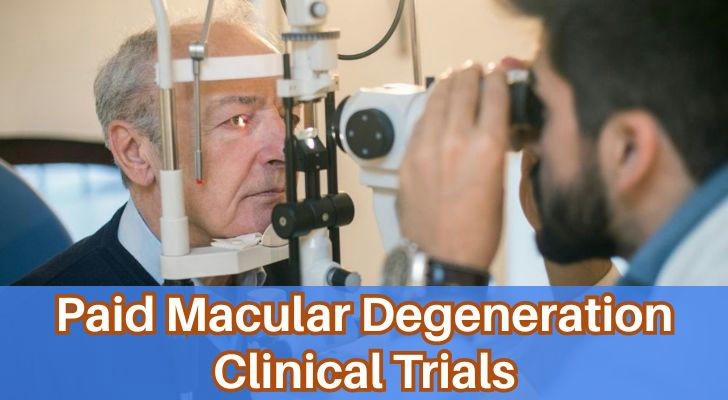Understanding Paid Clinical Trials for Macular Degeneration: What Participants Should Know
Considering participation in a clinical trial for macular degeneration? Paid research studies can offer access to promising treatments that may not yet be widely available, along with compensation or coverage of care costs. This guide reviews the key benefits, risks, and important factors to help you decide if enrolling in a paid clinical trial for age-related macular degeneration (AMD) makes sense for you.

Understanding Macular Degeneration and Clinical Trials
Macular degeneration, particularly age-related macular degeneration (AMD), is a leading cause of vision loss among older adults. Typical symptoms include blurred or reduced central vision, difficulty reading, and dark or empty areas in your field of sight. Diagnosis often involves a dilated eye exam, retinal imaging, and other specialized tests. Clinical trials for macular degeneration enroll individuals with varying stages of AMD—ranging from early to advanced disease—to test new therapies for both wet and dry types of AMD. Taking part in these studies may help advance future treatment options while providing you with access to investigational care.
The Rise of New Treatment Opportunities
Recent advancements have expanded treatment options in AMD clinical research. Wet AMD trials are evaluating new injectable medications, implants, and gene therapies, while studies for dry AMD (including geographic atrophy) are exploring oral medications, sustained-release devices, and stem cell approaches. As these therapies progress, more paid and reimbursed clinical trial opportunities are appearing nationwide. For individuals who may not respond fully to approved medications, participation can offer access to promising options.
Key Benefits and Compensation
Participating in a clinical trial for macular degeneration offers several potential benefits. Many studies provide access to advanced therapies and thorough eye care that may go beyond routine insurance coverage. Compensation for time and travel is common, depending on the study and procedures involved. Some trials also offer reimbursement for travel costs, hotel accommodations, or even transportation. For patients facing high out-of-pocket expenses for standard treatments, a paid clinical trial for geographic atrophy or other forms of AMD can offer significant financial relief. It is important to clarify the exact compensation and what expenses are covered before deciding to enroll.
Eligibility Criteria and Enrollment Steps
Eligibility for macular degeneration studies can vary. Common requirements include being above a certain age, having a confirmed diagnosis of AMD (specifying wet or dry type), and meeting specific vision or medical history guidelines. Some trials focus on early-stage AMD, while others enroll those with more advanced disease. To find trusted paid clinical trials, talk to your ophthalmologist, use searchable resources like ClinicalTrials.gov, or visit major academic medical centers. If you identify a suitable trial, you will typically complete a screening visit involving eye exams, health questionnaires, and a consent discussion before official enrollment.
What to Expect and Important Questions
During a clinical trial for macular degeneration, you can expect regular clinic visits for eye imaging, vision assessments, and administration of experimental treatments. Study lengths vary, with some lasting weeks and others a year or more. Careful monitoring for side effects and tracking of vision changes is standard. Before signing up, it’s smart to prepare a list of questions—such as the potential risks and benefits, the details of compensation, what happens if your vision worsens during the study, and whether your insurance covers any experimental treatments. The research team should fully explain all aspects of the study, including procedures, risks, and alternatives.
Risks, Challenges, and Considerations
Like any clinical study, participating in a macular degeneration trial involves potential risks. These may include side effects from investigational treatments, frequent clinic visits, or the possibility of being placed in a placebo or control group. While compensation is offered, insurance may not cover all emergencies or unrelated medical needs during the study. Weighing the pros and cons with your healthcare provider is essential. If you need to leave a study early, discuss any possible consequences during the consent process.
Making an Informed Decision
Partnering with your ophthalmologist is key to making an informed choice about AMD clinical trial participation. Make sure you fully understand your eligibility, how studies differ (for example, wet vs. dry AMD trials), and the specifics of compensation or travel coverage. Participate only after a thorough consent process and keep up to date with new trial opportunities through reputable research sites or by asking your doctor. Deciding to join a paid or no-cost macular degeneration study is a personal decision—a well-informed approach ensures the experience is positive and benefits both you and the future of eye care.
